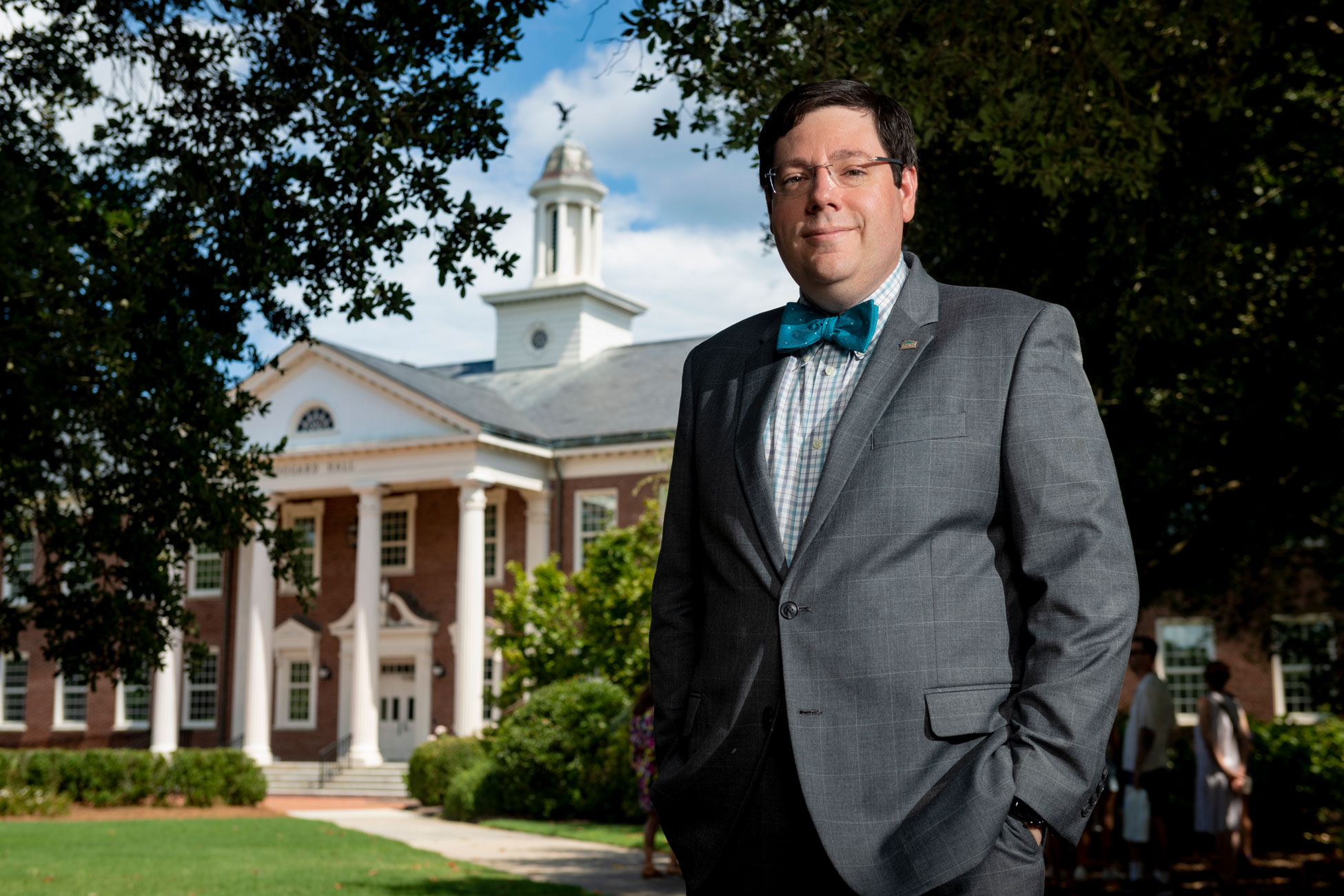
Photo: Jeff Janowski/UNCW
Nathaniel Grove, chemistry professor and director of the Center for the Support of Undergraduate Research and Fellowships, has been selected as one of three University of North Carolina System Faculty Fellows for 2024.
Grove will join Audrey Jaeger from NC State University and Delma Ramos from the University of North Carolina Greensboro in researching ways to improve transfer student access and success at public universities in North Carolina. Jaeger is the W. Dallas Herring Distinguished Professor and executive director of the Belk Center for Community College Leadership and Research. Ramos is an associate professor and doctoral program director in the UNCG Department of Teacher Education and Higher Education.
The work of the 2024 Faculty Fellows will focus on improving, supporting and sustaining student transfer access and success—a critical issue as universities grapple with changing demographics and enrollment declines nationally.
“I am both honored and excited to have been selected to serve as a 2024 Faculty Fellow,” said Grove. “Student success is our top priority as an institution, and better understanding the experiences of our transfer students—a population that makes up about 40 percent of the UNCW undergraduate students — is so important. I look forward to learning more about those experiences and adding to the conversation."
Groves has been a faculty member with UNCW’s Department of Chemistry and Biochemistry for 14 years and is the former Faculty Senate President.
“This is a well-deserved appointment. Dr. Grove's dedication to excellence in academia speaks for itself. I'm excited to see the positive impact he will undoubtedly make in this new role,” said Ron Vetter, founding dean of the College of Science and Engineering.
The 2024 Faculty Fellows’ research will focus on two important issues for transfer students. Nationwide, 80% of students at community colleges enter with the intention to transfer and earn a bachelor’s degree, according to national data from the Community College Research Center at Columbia University. Within five years, however, only 25% of those same students transfer to a four-year college, and only 17% earn a bachelor’s degree within six years of transferring.
Credit loss is another issue for transfer students. In 2017, the U.S. Government Accountability Office published research showing that students lost an average of 43% of their credits when they transferred from one institution to the next.
These are credible and compelling data, but there is no information available that speaks directly to the transfer landscape in North Carolina, said David English, senior vice president for academic affairs and chief academic officer at the University of North Carolina System.
“This is a perfect example of how the Faculty Fellows program helps us address real challenges while also offering our world-class faculty an opportunity to collaborate and apply their research Systemwide,” English said. “I’m grateful to this group for their willingness to address the student transfer issue in a way that provides meaningful information to our institutions.”
Together, the fellows will access institutional-level data from public and private institutions in North Carolina. They will also conduct interviews, focus groups and surveys to provide insights into the transfer student experience.
In addition to their research, the fellows will help to draft policies, regulations and guidelines that will influence student transfer programs across the state. Resources from the UNC System Office’s Division of Academic Affairs will be made available for the duration of the project, and fellows will present findings at various events across the state for university and community college faculty, staff and administrators in 2024 and 2025.
Founded in 2016, the fellowship engages faculty in issues related to academic affairs, offers mentorship and learning opportunities, and promotes the effectiveness of the System and its constituent institutions. Participants are encouraged to explore state and national challenges in public higher education.
This article has the following tags: Research & Innovation Academics Engagement CSE - College of Science & Engineering myUNCW


